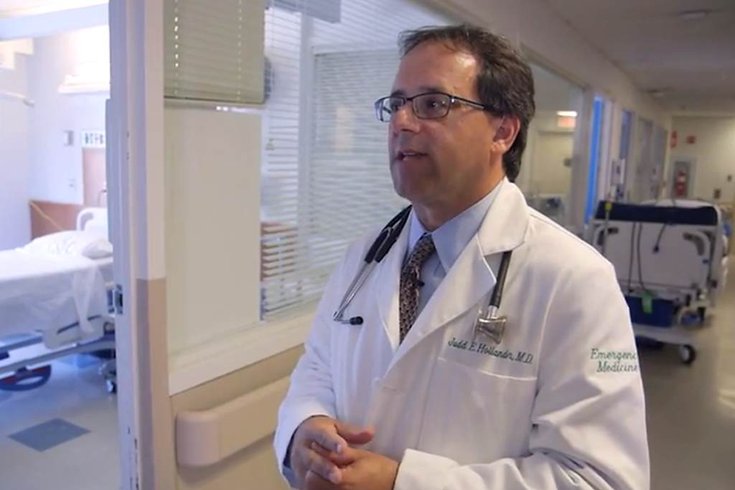
October 04, 2016
 Source: IBM/via YouTube
Source: IBM/via YouTube
Dr. Judd Hollander, associate dean for strategic health initiatives at Thomas Jefferson University Hospital in Center City, talks about how smart hospital rooms improve the quality of patient care.
Patients staying at Thomas Jefferson University's three Philadelphia hospital facilities may soon be able to convalesce with greater comfort and convenience, directing their care teams by ambient voice command.
In a groundbreaking partnership, IBM Watson announced that it will work with Jefferson to launch a series of "cognitive hospital rooms" powered by the artificial intelligence division's Internet of Things (IoT) platform.
The move to enhance hospital room design, a collaboration between physicians and engineers, comes in response to overstretched doctors and nurses who struggle to coordinate the delivery of care to patients in rooms throughout their wards.
Approximately 81 percent of physicians describe themselves as overextended or at capacity, according to The Physician's Foundation, while 20 percent of their time is spent on nonclinical paperwork.
"Being in a hospital can often be a hectic, anxiety-ridden, or even an intimidating experience for patients and their loved ones," said Neil Gomes, vice president for Technology Innovation and Consumer Experience at Thomas Jefferson University and Jefferson Health. "If we can minimize that discomfort, even a little, we are doing a lot to increase the well-being and care of our patients."
Watson's speaker systems aim to bring "deeper levels of personalized, agile and responsive care" to patients at Jefferson. Using IBM's cognitive computing and natural language capabilities, patients will be able to request information and specific actions from people or modify their hospital room environment by dimming lights, adjusting temperature and turning on music.
To further assist physicians and nurses, the platform can even carry on an interactive dialogue with patients that can be recorded and stored for later medical review.
“We are in the post-development phases of this program and are testing the cognitive care environment with our care givers," Gomes said. "We expect to deploy several of these systems in select areas of Thomas Jefferson University Hospital in the near future so patients can start enjoying the benefits.”
Thomas Jefferson University Hospitals has 900 acute care rooms across its three facilities.